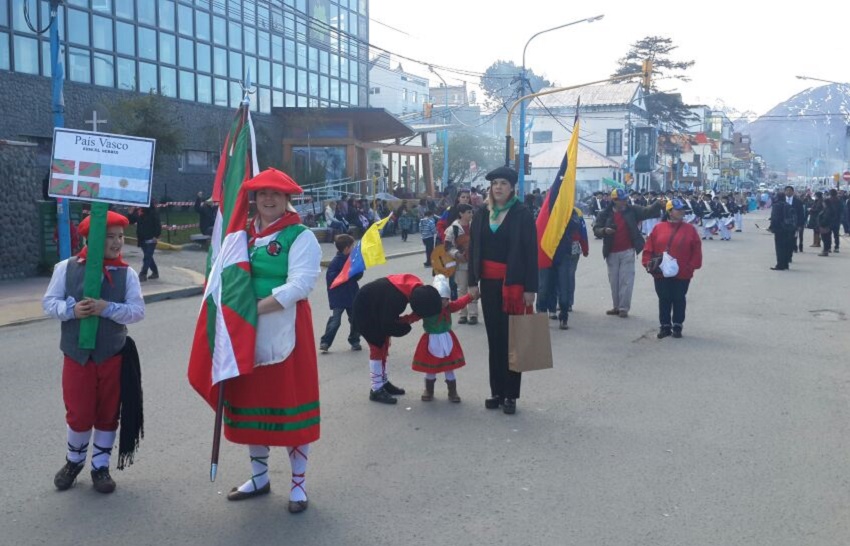The Basque community in Tierra del Fuego has, since September, had a reference and a place - for now virtual - to resort to, to deepen their knowledge about the culture and current affairs of Euskal Herria, as well as to make their contribution to the project, which hopes to materialize soon. The invitation comes from Ushuaia, a city that has already given a place to the members of the center in formation, both in cultural spaces and in the parade held on the city’s anniversary.
Ushuaia, Argentina. Since September of this year, the idea of establishing a euskal etxea in Ushuaia has gathered Basques, descendants of Basques, and friends of the Basque culture in the city as well as throughout the entire island of Tierra del Fuego. Towards this goal, the main promoter of the project, Sabrina Cabanillas, has taken a series of steps that will undoubtedly serve as the seeds of the club, once the conditions are right for formalizing its constitution.
Among the steps taken, is the installation of the club with the name Tierra del Fuego Basque Club, on social media. In this way, they not only share updated information on the Basque Country and the Basque Diaspora with their followers, but also relevant content in terms of customs, traditions and identity. At the same time, the appearance on the social media has allowed them to contact members of euskal etxeas from all over the country who didn’t waste any time in expressing their support for the project along with fellow citizens and inhabitants of the island interested in the initiative.
Not all of the activity that has taken place has been virtual; Cabanillas has also taken it upon herself to represent the community in the city and has done it in various areas. On the one hand, with an Ikurriña and traditional costumes in the parade held on October 12th on the 132nd anniversary of Ushuaia, and on the other, making a presentation about the Basque Country and its culture, invited by various radio stations in the country.
Looking forward, the objective is to continue to invite interested parties to form a group large enough to deal with the institutional organization. Meanwhile, this Navarrese descendant who was exposed to Basque culture from childhood, with a grandfather "who came to Argentina escaping Franco, wore a txapela and had customs from the baserri" has decided to honor his roots beyond the family and is laying the foundations of the Euskal Etxea of the End of the World.






 Send to a friend
Send to a friend Add comment
Add comment








